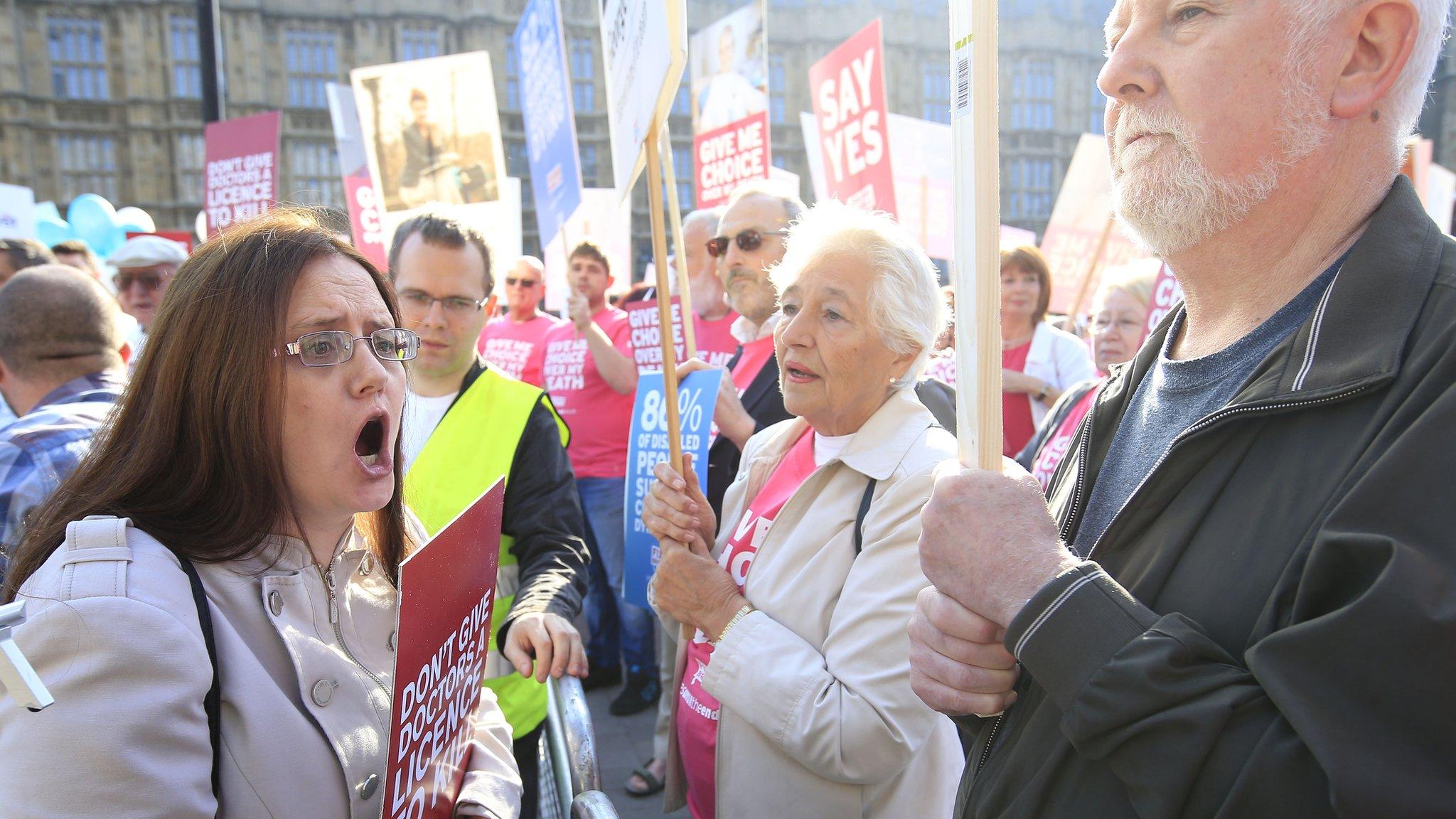Esther Rantzen: Minister says he is 'not averse' to new assisted dying vote
- Published
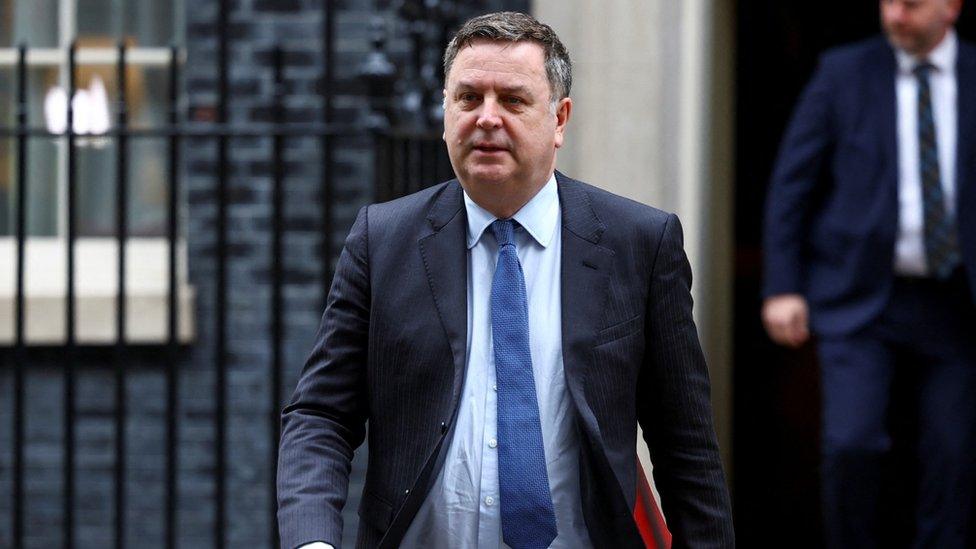
Work and Pensions Secretary Mel Stride has signalled his support for another parliamentary vote on assisted dying.
He said there was no fresh legislation in the works, but he "would not be averse" to a new Commons debate.
A bill to legalise assisted dying in the UK was defeated in 2015. Another Tory MP, Alicia Kearns, said national discourse had changed since then.
The issue is under discussion after Esther Rantzen announced she had joined the Dignitas assisted dying clinic.
Dame Esther, 83, has stage-four lung cancer and told BBC Radio 4's The Today Podcast on Monday that she planned to "buzz off to Zurich" - where the practice is legal - if her treatment did not work.
Assisted suicide is banned in England, Wales and Northern Ireland, with a maximum prison sentence of 14 years. While there is no specific offence of assisted suicide in Scotland, euthanasia is illegal and can be prosecuted as murder or culpable homicide.
Mr Stride, one of 27 Conservative MPs who voted for the 2015 bill, said he thought some MPs could be wondering "whether this should be something we look at again".
"The government has not decided to bring forward legislation," he told the Today programme on Wednesday, "but if Parliament in some form or another decided that it wanted to have a fresh look at this, given it was some years ago that we last did so, that's not something that I would be resistant to."
The minister said he understood both arguments for and against assisted dying.
He said someone should have the "maximum opportunity to have control of the end of their life", but also people must not be allowed to "use any legislation to cajole people into taking these kinds of decisions when it's not really in their best interests".
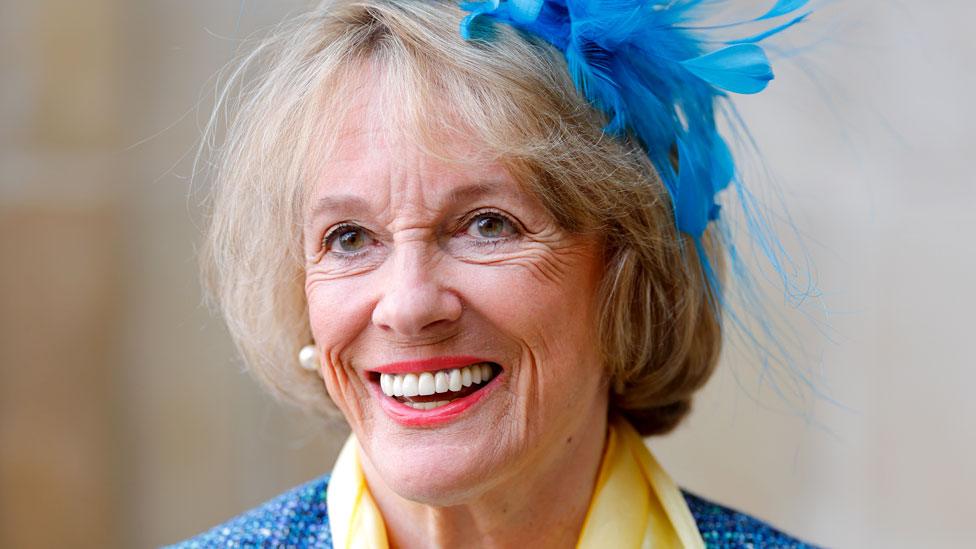
Dame Esther announced in January that she had been diagnosed with lung cancer
Two other MPs now in Prime Minister Rishi Sunak's cabinet also voted in favour of assisted dying eight years ago - Culture Secretary Lucy Frazer and Andrew Mitchell, the development minister.
MPs voted by 330 to 118 against a change in the law then, but there are now questions around when another vote could take place.
Ms Kearns, who chairs the foreign affairs select committee, said she thought there had been "a fundamental shift in the country, but also in parliament" since 2015.
"The amount of my colleagues who say 'I've reflected, I've changed my views'… I really do think that the national conversation has changed," she told the BBC, adding: "In my opinion, assisted dying is not about ending life, it's about shortening death."
Health Secretary Victoria Atkins would not be drawn on her feelings about the highly sensitive issue. "It has to be a matter for parliament and individual MPs," she said, pointing out that the last vote was on a Private Members' Bill.
Michael Gove, another Tory minister, said he thought it would be "appropriate" for the Commons to "revisit" the issue of assisted dying - but conceded he personally was "not yet persuaded" on the issue.
Meanwhile, shadow education secretary Bridget Phillipson agreed that there was an "argument for having a vote".
Speaking on Wednesday, Dame Esther encouraged MPs discussing the topic to think of their own loved ones "maybe who are older, maybe who are unwell, and think how you would wish them to spend their last days and weeks".
"It is agonising to watch someone you love suffer - nobody wants that for their family," she told the PA news agency, following reaction to her BBC interview. "And we live in a day and age when it's perfectly possible to offer people a gentle, peaceful death."
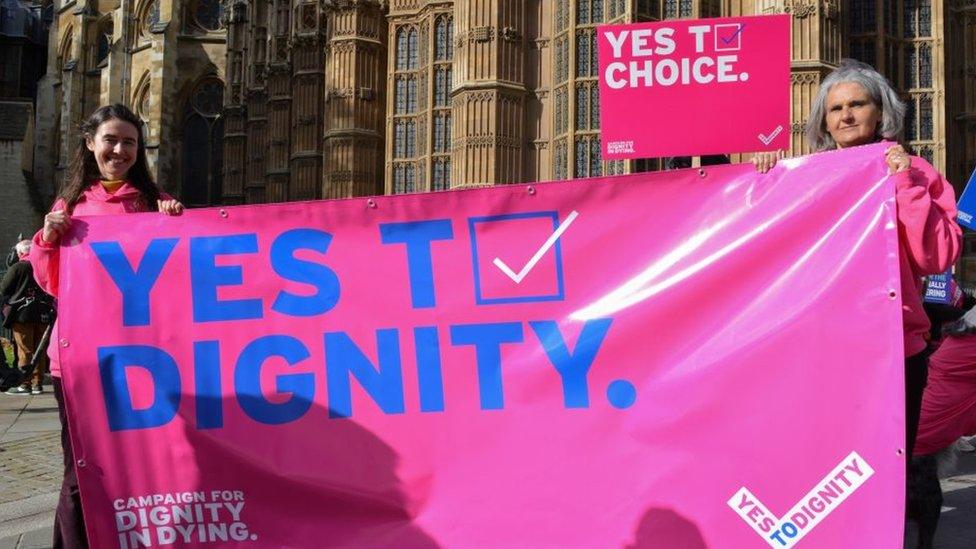
This file photo from 2022 shows protesters from the Dignity in Dying campaign outside Westminster
David Sowry took his wife to Dignitas to help her end her life. Christy had multiple sclerosis (MS), a disease that affects nerves in the brain and spinal cord.
Dignitas is a not-for-profit Swiss organisation that provides physician-assisted dying to members who, in its words, have illnesses "that will lead inevitably to death, unendurable pain or an unendurable disability" and who have made a "reasoned request" with medical proof.
Speaking on the Today programme, Mr Sowry read out a letter that his wife wrote at the time to explain her decision to family and friends.
"My only role in life will soon to be a full-time invalid," she said. "I don't want to be invalid, and therefore I don't want to be."
Mr Sowry said he wanted to see a change in the law to help people with terminal illnesses, and those facing a "long decline", avoid "unbearable suffering".
Others however say the focus should be on improving palliative care options.
Dr John Sorrell, a retired GP, told the BBC that he felt doctors "would find it very hard to end somebody's life, as is the case at Dignitas".
He also raised concerns about new laws being followed properly, saying they could be hard to monitor.
"These are vulnerable people and they can be coerced," Dr Sorrell said, referencing a potential situation where a struggling family puts pressure on a loved one to end their life due to the cost and emotional impact of keeping someone alive.
Dame Esther's own daughter, Rebecca Wilcox, told ITV's Good Morning Britain that she knew it was up to her mother, but she "personally would want to ground her plane if she was going to fly to Zurich".
"I just don't ever want her to go," she said.
Related topics
- Published19 December 2023
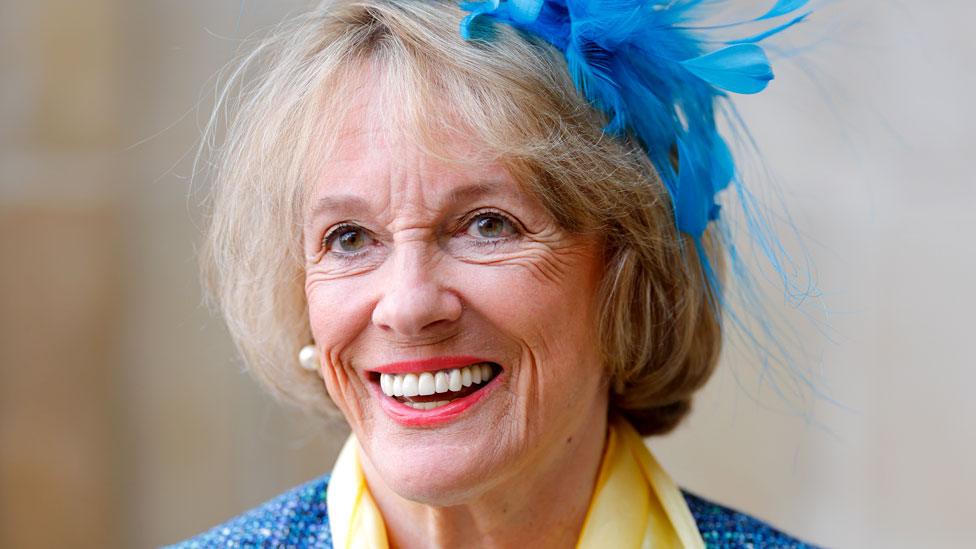
- Published31 October 2023

- Published11 September 2015
